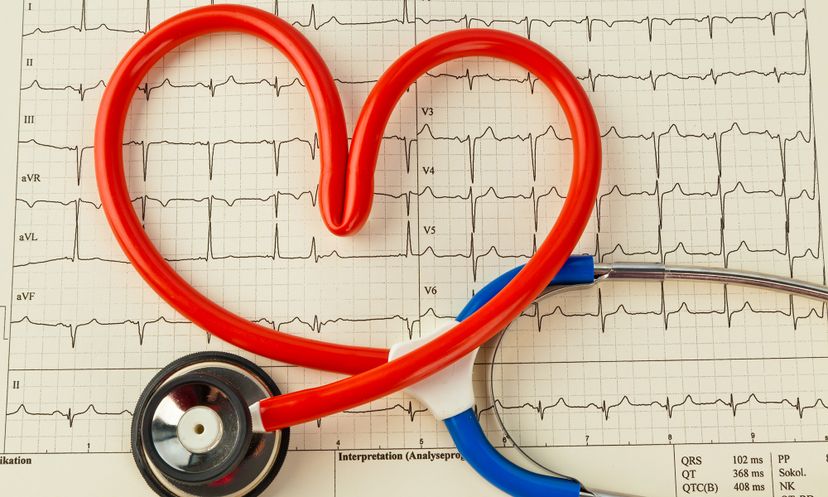
About This Quiz
The heart is a pump, and like other pumps, break down and need repair. And it does break down for many people -- heart disease is the leading cause of death in the United States. How much do you know about the dangers that threaten it?If cell death occurs, it's called infarction. Since a heart attack is cell death of heart muscle, it's called a myocardial infarction.
A stroke occurs when one of the arteries near the brain is blocked.
Your blood pressure has two numbers. In a blood pressure reading, the upper number is called the systolic blood pressure, while the lower number is called the diastolic blood pressure.
Advertisement
A systolic blood pressure less than 140 and a diastolic blood pressure less than 90 are considered normal.
Diuretics, also known as "water pills," excrete extra water and salt to lower blood pressure. There are six classes of medications to treat hypertension.
A BMI of 20-25 is considered good, over 27 is considered overweight, and over 30 is considered obese. Obesity increases the risk of heart disease by increasing other risk factors such as high blood pressure, diabetes and low HDL (good cholesterol).
Advertisement
An elevated level of LDL (the bad cholesterol) is associated with an increased risk of CAD. An elevated level of HDL (the good cholesterol) is associated with a decreased risk of CAD.
Beta blockers decrease the heart rate and force of the heart's contraction by blocking the effects of the nervous system on the heart. Medications in this class include Propranolol, Metoprolol and Atenolol.
The study reported that mice that were bred to develop atherosclerosis (clogged arteries) quickly experienced a 38 percent decrease in artery plaque buildup when they were fed vegetables.
Advertisement
Those who ate at least 1 cup of carrots or squash every day were 60 percent less likely to have heart problems.
The average heart expands and contracts about 100,000 times each day.
Doctors perform an angiogram to test for heart disease.
Advertisement
Adults that carry extra weight are more likely to have high blood pressure and elevated cholesterol levels. Both of these disorders are precursors to heart disease.
The heart pumps 2,000 gallons (7,571 liters) of blood throughout the body.
Smokers are three times more likely to die from heart disease than non-smokers.
Advertisement
CRP is a protein that reacts to inflammation. Studies show that patients with the highest levels of CRP are twice as likely to have a heart attact.
High levels of LDL cholesterol (bad cholesterol) and low levels of HDL cholesterol (good cholesterol) can lead to plaque buildup in the arteries. High levels of HDL cholesterol can prevent this buildup.
Drinking alcohol in moderation can benefit the heart. There are also downsides to drinking alcohol excessively: alcoholism, cancer, liver disease, obesity and heart disease.
Advertisement
Doctors say if you are born with LTC4S, you're four times as likely to develop heart disease later in life.
Women who slept more than nine hours per night were 37 percent more likely to have heart trouble. Eight hours of sleep is sufficient.